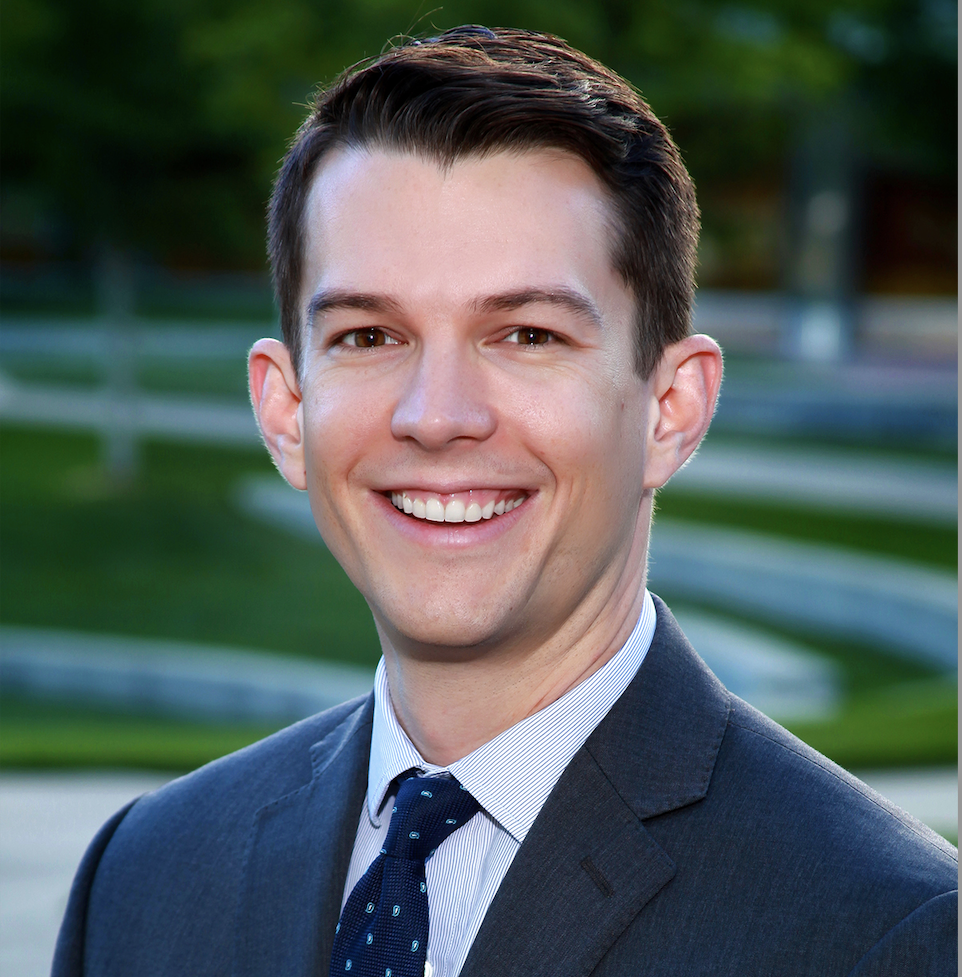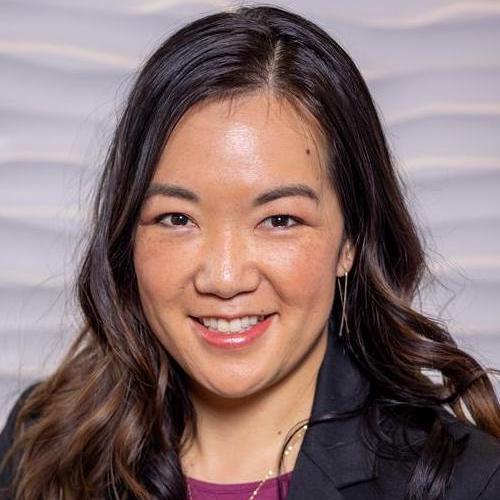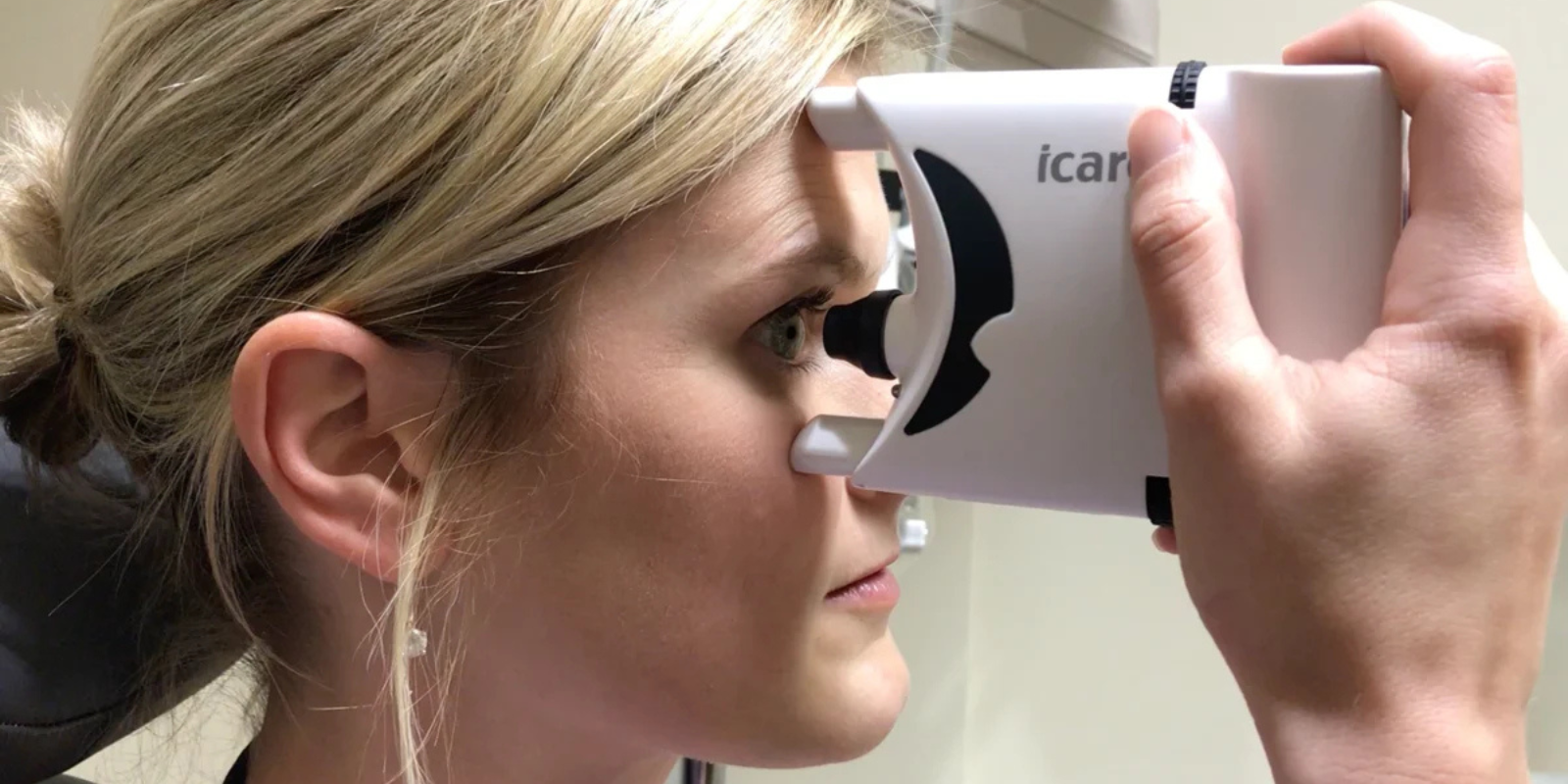Looking for ways to introduce new ophthalmic technicians to a supportive career development path, the University of Colorado Department of Ophthalmology in partnership with UCHealth Sue Anschutz-Rodgers Eye Center created the Ophthalmic Assistant (OA) Academy, a clinical mentorship program.
This 24-month program offers both specialized training and entry-level employment at the Sue Anschutz-Rodgers Eye Center, alleviating the financial burdens of continuing education to become ophthalmic technicians.
“We're filling that gap in employment by training our very own strong employees to become ophthalmic technicians, and we've incorporated that into their daily work schedule,” explains Naresh Mandava, MD, chair of the CU Department of Ophthalmology and Sue Anschutz-Rodgers Endowed Chair in Retinal Diseases. “That way, they can continue to be fully employed and compensated until they become certified technicians.”
Faculty members from the department, in partnership with the program chairs, develop programming that provides participants with a comprehensive education in ophthalmology and clinical skills including applanation tonometry, refraction, patient assessment, and manual lensometry. The knowledge and skills participants gain allow them to apply to clinical roles providing direct patient care.
Ophthalmology career opportunities without the cost
Technicians have traditionally faced challenges that included expensive certification programs, completing certifications within one year of hire, and remaining subject matters experts on all parts of the eye, rather than subspecialities such as glaucoma or retinal care. These obstacles, ranging from lack of access and interest to financial circumstances, ultimately attracted and retained fewer staff members.
By eliminating financial burdens, offering self-paced learning, and mirroring subspecialty training for ophthalmologists, the academy has increased employee satisfaction, retention, and career growth.
“Our call center agents, for example, are highly incentivized to join the cohort,” Eimi Rodriguez Cruz, director of ophthalmic services at UCHealth, says. “Once they are accepted, it is up to them to excel in the call center before they are able to apply to the OA Academy program. Training their replacements thoroughly and quickly drives their ability to advance into clinical rotations.”
“If they were to get this education and training elsewhere, it would cost anywhere from $40,000 to $60,000, so we were quite excited to offer the OA Academy at no cost to our employees,” she continues.
Beyond existing entry-level staff members at the Sue Anschutz-Rodgers Eye Center, the OA Academy is also seeking individuals without health care experience. To start, new staff members are hired into an entry-level administrative position allowing them to begin the interview process to become a student of the OA Academy. Individuals with some level of ophthalmic experience, but no certification, are able to start training as an ophthalmic assistant. The last level places individuals into clinical technician roles to earn an International Joint Commission on Allied Health Personnel in Ophthalmology (IJCAHPO) certification.
Everyone accepted into the OA Academy program has the opportunity to advance their careers beyond ophthalmic technician roles.
Inaugural graduating class
After building the program over the last six years, the first-ever OA Academy cohort will graduate this fall.
This cohort has worked throughout the COVID-19 pandemic over the last two years to complete clinical rotations, certifications, lectures with CU faculty and program leaders – even training their replacements as they advance through the program. Upcoming graduates include Andrew Pak, Brooke Ludwig, Gabe Gonzales, Chantelle Rogers, and Katherine Gentile, earning ophthalmic assistant job titles.
“Following the experience of our upcoming graduates over the past two years has been one of the greatest highlights of my career in ophthalmology,” Rodriguez Cruz says. “Their resilience has reenergized many of us as we watched them maneuver through the OA Academy while facing COVID-related redeployments to support in-patient care, managing their family responsibilities, and providing stellar mentorship for their replacements in the call center.”
As one of the physicians who helped develop the program, this inaugural graduation is a full-circle moment for Michael Wildes, MD, assistant professor of ophthalmology at the CU School of Medicine and clinical operations director of the Sue Anschutz-Rodgers Eye Center.
“I had the privilege of being involved with the OA Academy as a resident during the very early years of its formation,” Wildes recalls. “After returning to work with the Eye Center after more than two years, it’s extraordinary to see its growth and success. As an ophthalmologist, it’s important to have a knowledgeable team, so it’s very impressive to have a group of staff dedicated to a strong education.”
Following the success of the first graduating cohort, the Department of Ophthalmology recently announced Melanie Akau, OD, as the new Medical Director of Staff Education. She will collaborate closely with Wildes, Rodriguez Cruz, and Tia Holifield, who is the clinical supervisor and chair of clinical staff education at the UCHealth Sue Anschutz-Rodgers Eye Center, to develop curricula for all levels of the ophthalmic technician program.
Soon, the academy will offer new tracks, too, including a dynamic ophthalmic surgical assistant program, an ophthalmic imaging assistant program, and an ophthalmic scribe program.
Extending training to high school students
As one cohort graduates, the OA Academy will welcome another – this time with a focus on reaching younger students interested in ophthalmology. The Sue Anschutz-Rodgers Eye Center is partnering with Aurora Public Schools to launch the academy’s first high school internship.
Following an application process, the internship will last three-to-four months for selected high school seniors. Although the program begins in the fall of 2022, Ulises Perez has been selected as the internship’s first high school participant. Perez graduated from Rangeview High School in May and will work as a Patient Access Specialist at the CU Anschutz Medical Campus location.
“We think that this is an important model for long-term career development of our workforce,” Mandava says. “The greatest challenge in creating a highly skilled health care team is developing the pipeline of new and talented employees. Through partnering with regional high schools, the program that we've developed is allowing us to launch them into highly successful career paths immediately out of high school.”
This new program, led by UCHealth Eye Center's Trevor McGill, offers both hands-on training and educational lectures, and will open doors for high school-aged students who want to jumpstart their career after graduation.
“More often than not, I hear students tell me that they wouldn’t be qualified to come into this enormous health care setting, or they don’t have the right skills for this type of job,” Rodriguez Cruz recalls. “It’s our responsibility to develop the next generation of health care workers. This program will open the doors earlier, providing high school students direct access to administrative and clinical mentors who will help them see their value and guide them toward attaining their goals of becoming a technical clinician, administrator, or a surgeon.”
“If we meet them where they're at, they can be successful,” she continues. “We believe their success will also translate to the care our patients receive by thoughtfully building teams from within our community.”
Although CU faculty would love to see these students working beside them as colleagues one day, the program provides guidance and counseling for students to design their own career paths.
“My hope for the high school interns is that they use this opportunity to discover their career goals and passions,” Wildes says. “It’s exciting to see the next generation of health care leaders taking an early initiative to find their path in our field, and especially exciting if they see the advantages of starting a career with us and choose to work with Sue Anschutz-Rogers Eye Center after completing their internship.”




.png)

